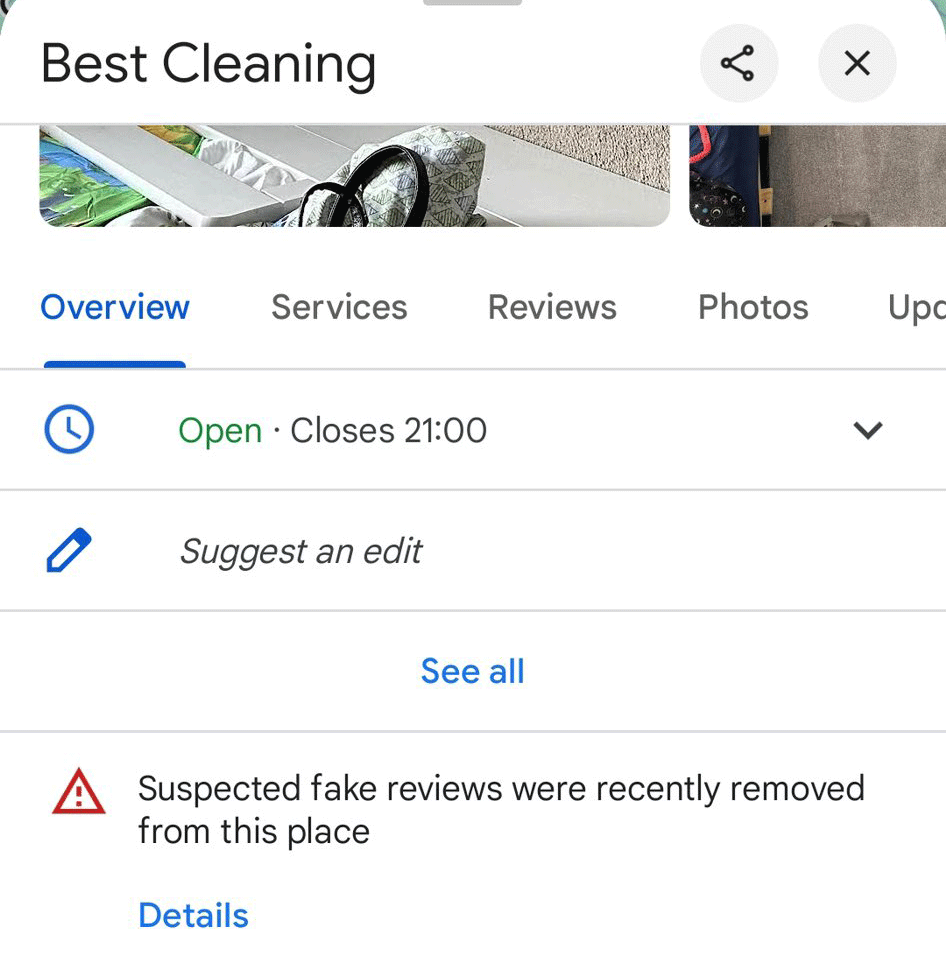
The Truth About Buying Website Traffic: Is It Worth the SEO Risk?
BlogIs Buying Traffic To My Website Good For Search SEO? Let’s Get Real So, you’re sitting there, staring at your website analytics, wondering why your traffic looks like a deserted highway at 3 a.m. Cue the sad trombone. You’ve heard whispers that buying traffic could be the magic bullet—the espresso shot your SEO strategy needs. But hold up. Before you whip out that credit card, let’s talk about whether buying traffic is actually a genius move or just a one-way ticket to Google’s naughty list. At [Business Name], we’ve seen it all: clients who’ve tried buying traffic and soared (temporarily), and others who crashed harder than a TikTok trend. Let’s break it down, no fluff, no jargon—just real talk. What Even Is “Bought Traffic”? Let’s Define This Mess First off, let’s clarify: buying traffic means paying a third party to send visitors to your site. This could be through: PPC ads (like Google Ads or social media promotions). Bot-generated clicks (sketchy, but hey, some folks still try it). Click farms (where humans—or robots pretending to be humans—click your links for cash). The big question: Does this fake-it-till-you-make-it approach actually boost your SEO? Or does Google side-eye it like last season’s socks? The Pros of Buying Traffic: When It Might Make Sense Look, we’re not here to shame anyone. Sometimes buying traffic works—if you do it right. Let’s play devil’s advocate: 1. Quick Wins for Testing Launching a new product? Buying traffic can flood your site with visitors to test landing pages, user experience, or conversion rates. Think of it as a stress test for your website. At [Business Name], we’ve helped clients use paid traffic to refine their messaging before going all-in on organic strategies. 2. Brand Visibility (AKA “Look at Me!”) More eyeballs = more brand recognition. Even if those visitors don’t convert immediately, they might remember your name later. It’s like plastering your face on a billboard—except cheaper and less embarrassing. 3. Social Proof Higher traffic numbers can make your site look popular, which might attract genuine users. “Wow, 10k monthly visitors? This must be legit!” (Spoiler: This only works short-term.) The Cons: Why Buying Traffic Feels Like a Sugar Rush Here’s where the sarcasm kicks in. Buying traffic is like eating a dozen donuts: feels great at first, then you crash hard. Let’s dissect: 1. Low-Quality Traffic = Bounce City If you’re buying bot traffic or clicks from disinterested users, your bounce rate will skyrocket faster than a caffeinated squirrel. Google notices this. High bounce rates signal poor content, which tanks your rankings. Oops. 2. Google Hates Tricks (And So Do We) Google’s algorithms are smarter than your average trivia night champ. They can sniff out artificial traffic like a bloodhound. If caught, you risk penalties—or worse, getting de-indexed. Suddenly, your site vanishes from search results. Poof! 3. Wasted Money Let’s be real: buying traffic isn’t cheap. And if those clicks don’t convert? You’re basically lighting cash on fire. At [Business Name], we’d rather you spend that money on actual SEO strategies—like creating killer content or optimizing your site speed. “But Does Buying Traffic Help SEO?” Let’s Settle This Short answer: Nope. Here’s why: Engagement Matters More Than Clicks Google cares about how users interact with your site. Are they staying? Sharing? Buying? Bought traffic rarely sticks around long enough to matter. No Backlinks, No Glory Organic traffic often comes with backlinks (those golden tickets for SEO). Bought traffic? Crickets. Without backlinks, your site’s authority stays flat. Risk vs. Reward Even if you dodge Google’s penalties, the ROI is shaky. Why gamble when you could build sustainable growth? Better Alternatives: Play the Long Game At [Business Name], we’re all about strategies that last. Try these instead: 1. Master the SEO Basics Fix technical issues (broken links, slow loading times). Use keywords naturally—no stuffing, please. Optimize meta tags and headers. 2. Create Content That Doesn’t Suck Write for humans, not bots. Solve problems. Be funny. Be useful. Be memorable. 3. Leverage Social Media (The Right Way) Engage authentically. Share value. Build a community—not just a follower count. FAQs: Your Burning Questions, Answered Q: “Can bought traffic improve my SEO rankings?” A: Not really. Google prioritizes user behavior and quality content. Fake traffic won’t fool ’em. Q: “Will I get penalized for buying traffic?” A: If it’s bot traffic? Absolutely. Stick to legitimate PPC campaigns to stay safe. Q: “What’s the fastest way to boost organic traffic?” A: Publish epic content, optimize for SEO, and promote it like your life depends on it. (We can help with that—wink.) Final Thoughts: Don’t Be a Traffic Cheat Buying traffic might seem tempting, but it’s like building a house on quicksand. Sure, it looks cool for a minute—then it collapses. At [Business Name], we’d rather help you lay a solid foundation with SEO strategies that actually work. Ready to ditch the shortcuts and grow your traffic the right way? [Business Name] is here to chat. Let’s make Google fall in love with your site—no sketchy tricks required. 😉 TL;DR: Buying traffic = bad SEO. Focus on quality content and legit strategies. [Business Name] has your back.

Combatting Fake Reviews: Google’s 2025 Business Profile Changes Explained
BlogGoogle’s New Business Profile Restrictions: Fake Reviews (And Why We’re All Gonna Be Okay) Let’s cut to the chase: fake reviews are the internet’s version of a bad toupee—obvious, awkward, and no one’s fooled. But here’s the kicker—Google’s finally tightening the screws on them. If you’re a business owner sweating over these new restrictions, take a deep breath. We’ve got your back. At Sitelinx Organic SEO Agency in Los Angeles, we’ve been knee-deep in Local SEO and Google Business Profile drama for years. Trust us, this isn’t the apocalypse—it’s an upgrade. So, why should you care? Because fake reviews aren’t just annoying; they’re toxic. They mess with your credibility, tank your rankings, and make customers side-eye your business like it’s a suspicious leftovers container. But hey, let’s not panic. Let’s strategize. Why Fake Reviews Are Everyone’s Problem (Yes, Even Yours) First off, let’s get real: fake reviews aren’t just a “big business” issue. Whether you’re a cozy coffee shop or a WordPress wizard offering SEO services, your Google Business reviews are your digital handshake. Google’s new restrictions? They’re like a bouncer at the club, kicking out the posers so the real stars can shine. Here’s what’s changing: Stricter verification: Google’s cracking down on reviews from suspicious accounts (read: profiles created yesterday with zero history). AI-powered detection: Algorithms now hunt for patterns like repetitive language or sudden review spikes. Faster removals: Flagged reviews get yanked quicker, but you still need to stay vigilant. Fun fact: A recent client of ours (a boutique bakery) had a competitor flood their profile with one-star “reviews” from accounts that only existed to trash them. Took us 48 hours to clean it up—and boost their rankings. Moral of the story? Fake reviews are a pain, but fixable. How to Adapt Without Losing Your Mind (or Your Rankings) Okay, let’s talk solutions. Google’s playing hardball, but we’re here to make sure your business doesn’t strike out. Step 1: Audit Your Existing Reviews Grab a coffee and comb through your Google Business reviews. Look for: Generic language (“Great service!”, “Terrible experience!”) with no specifics. Multiple reviews posted in a short timeframe. Accounts with no profile photos or activity. Pro tip: Use tools like ReviewTrackers or just hire an SEO specialist (hi, that’s us) to handle the dirty work. Step 2: Encourage Real Reviews Like Your Business Depends on It (Because It Does) The best defense against fake reviews? A flood of genuine ones. Here’s how: Ask politely: Add a review link to email signatures, receipts, or your website. Make it easy: Use QR codes on tables, counters, or invoices. Incentivize (ethically): Offer a small discount or entry into a giveaway—after they leave a review. FYI: Google’s guidelines forbid offering incentives for positive reviews, so keep it neutral. Why Local SEO Is Your New Best Friend Let’s get nerdy for a sec. Local SEO isn’t just about keywords—it’s about building trust. Google’s algorithm now prioritizes businesses with: Consistent NAP (Name, Address, Phone) across directories. High-quality photos and updated hours. Legit reviews that reflect real customer experiences. At Sitelinx, we’ve seen businesses jump 3+ spots in local rankings just by cleaning up their profiles and optimizing for these factors. And guess what? It’s cheaper than Google Ads. When to Call Reinforcements (Hint: We’re Really Good at This) Look, we get it. Between website management, technical SEO services, and pretending to understand TikTok trends, you’ve got enough on your plate. That’s where an SEO agency like ours comes in. Here’s what the best SEO companies for small business can do for you: Monitor reviews 24/7: We’ll flag fakes faster than you can say “algorithm update.” Optimize your WordPress SEO: Because nobody wants a slow, clunky site in 2024. Fix technical nightmares: Broken links? Mobile-unfriendly design? Consider it handled. Rhetorical question: Why stress over Google’s ever-changing rules when you could be sipping margaritas while we do the heavy lifting? 3 Burning Questions About Fake Reviews (Answered Without the Jargon) “How do I prove a review is fake?” Look for vagueness, duplicate content, or a reviewer with no history. Screenshot everything and report it via Google’s dashboard. “Will Google penalize my business if competitors leave fake reviews?” Only if you’re the one posting them. Google’s smarter now—they’ll target the culprit, not the victim. “Can I just delete bad reviews?” Only if they violate policies (e.g., hate speech, spam). Otherwise, respond professionally and fix the issue. The Bottom Line: Play the Long Game Google’s new restrictions aren’t about making your life harder—they’re about fairness. Fake reviews cheat everyone: businesses, customers, even Google’s algorithm. By focusing on authentic engagement, Local SEO, and a rock-solid online presence, you’ll not only survive but thrive. And hey, if you’re feeling overwhelmed, remember Sitelinx Organic SEO Agency exists. We’re a Los Angeles-based team of SEO nerds who live for this stuff. From WordPress SEO services to reputation management, we’ve got your back. Final thought: Fake reviews are like glitter—annoying, persistent, but not impossible to clean up. Let’s grab a virtual broom and get to work. :)** Need a hand? Contact Sitelinx Organic SEO Agency for a free audit. Because life’s too short for fake reviews and mediocre rankings.
